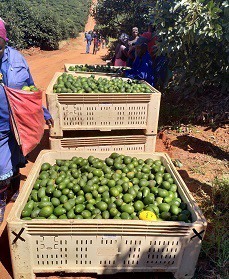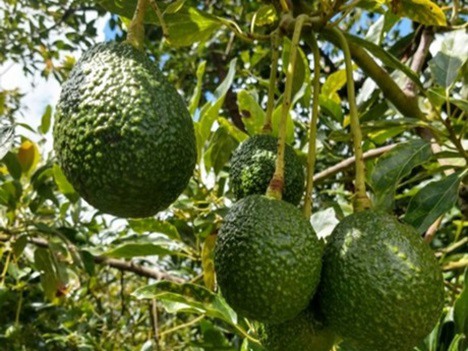 Agricultural economist Samkelisiwe Ngwenya of the directorate: international trade promotion at the Department of Agriculture, Land Reform and Rural Development presented the annual value chain analysis into avocados, conducted in conjunction with the National Agricultural Marketing Council and using a modelling tool developed by the North West University to realistically assess export opportunities.
Agricultural economist Samkelisiwe Ngwenya of the directorate: international trade promotion at the Department of Agriculture, Land Reform and Rural Development presented the annual value chain analysis into avocados, conducted in conjunction with the National Agricultural Marketing Council and using a modelling tool developed by the North West University to realistically assess export opportunities.
South Africa ranks among top 10 avocado exporters in the world (not among the top 10 avocado producers, however, since the industry is heavily export-oriented).
In 2021 the Netherlands, the UK and Russia were the three biggest recipients of South African avocados taking 62.5%, 18% and 5% respectively. The only African countries among the top 10 were Namibia and Botswana while the United Arab Emirates in eighth position was the only other non-European country.
The limited market diversification in avocado exports has become a significant obstacle to the avocado industry, she remarked, since the country was overdependent on the EU and overlapped with Peru during its peak harvest.
The findings indicated that South Africa’s largest realistic export potential is still found in the European Union and EFTA states (Iceland, Norway, Lichtenstein, Switzerland) as well as the UK, where South Africa enjoys preferential tariff rates of 0%.
Meanwhile, countries in Central and East Africa which lie closer to the equator and can produce avocados all year round, have emerged as new competitors to South Africa in the traditional destinations.
“South Africa’s avocados volumes have grown exponentially while the EU was becoming more and more concentrated. Moreover, in the EU South Africa is exposed to potential changes in the EU regulatory environment,” she told the seminar.

High potential in North America & Japan
“The United States, Canada, Japan and China - in that order - are the most promising future markets in terms of size for South Africa,” she said.
South Africa is yet to send avocados to China with the signing of the new protocol, but a tariff of 25% will apply to South Africa’s avocados, reducing that market’s potential when compared to zero tariff markets like the USA and Japan.
Years of negotiations to open the USA have not yet led to a breakthrough, she noted, but negotiations with Japan are well on track and could be closer to approval.
The USA’s avocado market is, of course, heavily dominated by Mexico, but South Africa’s counter-seasonality as well as AGOA preferential market access acts in the country’s favour.
There aren’t market access challenges to Canada, but South Africa has not yet fully explored the country due to freight expenses.
The African Continental Free Trade Agrea might also have the result that South Africa captures a higher market share in countries like Egypt.
